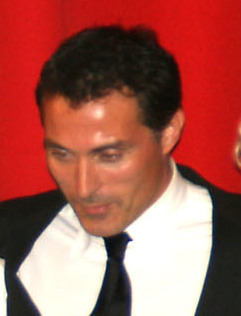A Quote by Ehud Olmert
It's a problem sometimes when you speak to journalists. They quote you, and then they read what they wrote, and then they even explain it. It's dangerous.
Related Quotes
I speak English, obviously, Afrikaans, which is a derivative of Dutch that we have in South Africa. And then I speak African languages. So I speak Zulu. I speak Xhosa. I speak Tswana. And I speak Tsonga. And like - so those are my languages of the core. And then I don't claim German, but I can have a conversation in it. So I'm trying to make that officially my seventh language. And then, hopefully, I can learn Spanish.
We have been trying to point out that this concept of an indefinitely favorable future is dangerous, even if it is true; because even if it is true you can easily overvalue the security, since you make it worth anything you want it to be worth. Beyond this, it is particularly dangerous too, because sometimes your ideas of the future turn out to be wrong. Then you have paid an awful lot for a future that isn't there. Your position then is pretty bad.
There is no explanation you can give that will explain away all the sufferings and evil and torture and destruction and hunger in the world! You'll never explain it. Because life is a mystery, which means your thinking mind cannot make sense of it. For that you've got to wake up and then you'll suddenly realize that reality is not the problem, you are the problem.
'The Sword of Shannara' is about two brothers who find themselves on an epic quest to save humanity. It borrows from 'Lord of the Rings' but is still original in its own right. I read it in three days, then reread it, then went out and found every single book Terry Brooks ever wrote, and read all those.
From the essay "Twenty-five Things People Have a Shocking Capacity to Be Surprised by Over and Over Again" 1. Journalists sometimes make things up. 2. Journalists sometimes get things wrong. 3. Almost all books that are published as memoirs were initially written as novels, and then the agent/editor said, This might work better as a memoir. 6. Freedom of the press belongs to the man who owns one.


































